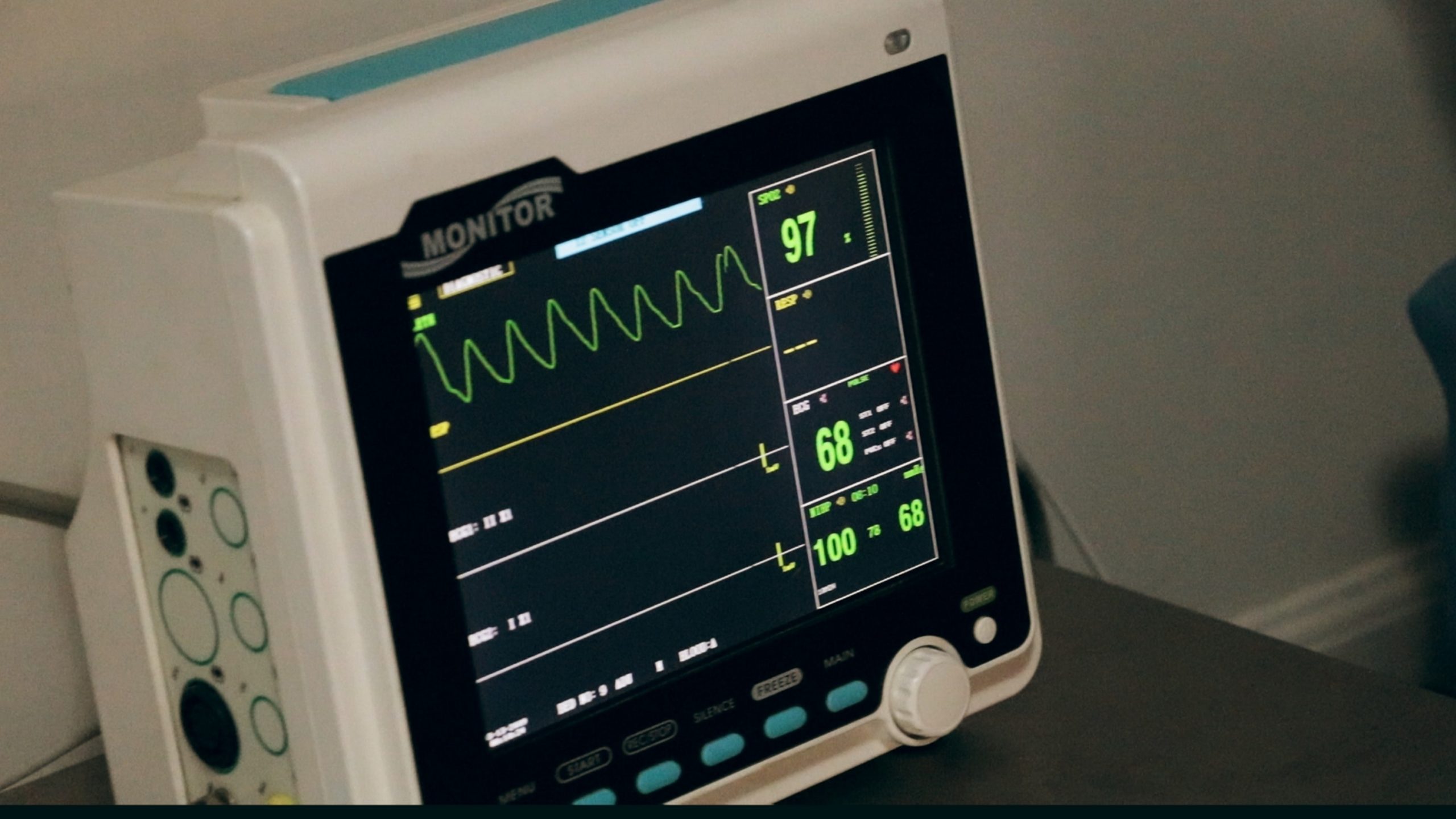Is it an anxiety attack? Are you having panic attack symptoms? Are they the same thing? If not, how are they different? Anxiety attacks and panic attacks are, in fact, separate occurrences. Panic attacks are recognized by the DSM-5; but anxiety attacks are not, as anxiety is associated with various anxiety disorders (American Psychiatric Association, 2013).
 Panic disorder is one type of anxiety disorder, yet clients and clinicians nonetheless differentiate between the two. Anxiety attacks tend to be more gradual and are associated with a specific fear or dread, whereas panic attacks are more sudden and are not necessarily associated with a specific stressor. Some individuals who go to the emergency room fearing they are having a heart attack discover that they are having a panic attack instead, as the symptoms are similar.
Panic disorder is one type of anxiety disorder, yet clients and clinicians nonetheless differentiate between the two. Anxiety attacks tend to be more gradual and are associated with a specific fear or dread, whereas panic attacks are more sudden and are not necessarily associated with a specific stressor. Some individuals who go to the emergency room fearing they are having a heart attack discover that they are having a panic attack instead, as the symptoms are similar.
For the Christian believer who is experiencing anxiety, anxiety attacks, and panic attacks, God’s Word has much to say regarding this topic. The Bible links anxiety to fear. The enemy uses fear, anxiety, and panic to torture the minds and emotions of believers. It is part of his job description to steal, kill, and destroy, and he has had a lot of practice!
As we explore clinical differentiations of anxiety and panic attacks, we also must look to God’s word to find the solution to these fiery darts. God wants us to experience His peace and overcome these obstacles to our faith. A Christian therapist will help you by using a combination of biblical principles and clinical interventions if you present with these symptoms.
Anxiety Attacks
Causes of Anxiety Attacks
An anxiety attack is usually gradual and associated with the anticipation of a negative situation – whether perceived or actual. Anxiety disorders include generalized anxiety disorder; panic disorder; phobias/specific phobia; agoraphobia; social anxiety disorder; and separation anxiety disorder (American Psychiatric Association, 2013).
Anxiety is frequently associated with negative life experiences and traumatic events, which can trigger current symptoms. Anxiety disorders can be a result of both environment and genetics (Vandergriendt, 2019).
Anxiety can be associated with a medical condition such as heart disease, diabetes, chronic illness, cancer, or substance use. If your anxiety is related to life stressors and not a medical issue, your doctor can help to rule out medical diagnoses by going over your family’s medical history with you.
Other causes of anxiety attacks can be attributed to trauma, stress, personality predispositions, genetics (biological relatives who also have an anxiety disorder diagnosis), substance use, and other mental health disorders.
 For example, an individual with a diagnosis of schizophrenia who has audio hallucinations may experience anxiety and/or an anxiety attack when in public places with large numbers of people such as a football stadium or even riding on a bus.
For example, an individual with a diagnosis of schizophrenia who has audio hallucinations may experience anxiety and/or an anxiety attack when in public places with large numbers of people such as a football stadium or even riding on a bus.
Symptoms of Anxiety Attacks
Symptoms of anxiety typically include:
- Feeling nervous, restless, or tense
- Having a sense of impending danger, panic, or doom
- Having an increased heart rate
- Breathing rapidly (hyperventilation)
- Sweating
- Trembling
- Feeling weak or tired
- Trouble concentrating or thinking about anything other than the present worry
- Having trouble sleeping
- Experiencing gastrointestinal (GI) problems
- Having difficulty controlling worry
- Having the urge to avoid things that trigger anxiety
(Mayo Foundation for Medical Education and Research [MFMER], 1998-2020a).
Panic Attacks
Causes of Panic Attacks
Causes of panic attacks are not known, but they can include the following elements:
- Genetics
- Major stress
- A temperament that is more sensitive to stress or prone to negative emotions
- Certain changes in the way parts of your brain function
(MFMER, 1998-2020b).
Panic Attack Symptoms
Panic attacks, as mentioned before, are more sudden than anxiety attacks and can include the following symptoms:
- Sense of impending doom or danger
- Fear of loss of control or death
- Rapid, pounding heart rate
- Sweating
- Trembling or shaking
- Shortness of breath or tightness in your throat
- Chills
- Hot flashes
- Nausea
- Abdominal cramping
- Chest pain
- Headache
- Dizziness, light-headedness, or faintness
- Numbness or tingling sensation
- A feeling of unreality or detachment
(MFMER, 1998-2020b).
Panic Attack Symptoms vs. Heart Attack Symptoms
As earlier addressed, panic attack symptoms can emulate heart attack symptoms. Knowing the difference between the two can save your life or the life of someone you know. The overlapping symptoms can be confusing. Note the following differences:
Panic Attack Symptoms
- Sharp pain in the chest
- Tingling in the hands
- Shortness of breath
- Racing heart
- Sweating
- Shaking
Heart Attack Symptoms
- Chest pain
- Shortness of breath
- Nausea
- Vomiting
- Sweating
(Healthline Media UK Ltd., 2004-2020)
If you are unsure whether your symptoms are resulting from a panic attack or a heart attack, it is best to seek emergency medical attention.
Interventions for Panic Attacks and Anxiety Disorders
 Clinical interventions for panic attacks, anxiety attacks, and anxiety disorders include the following: Panic-Focused Psychodynamic Therapy (PFPP), Cognitive Behavioral Therapy (CBT), Rational Emotive Behavior Therapy (REBT), behavioral modification, exposure therapy, couple and family systems therapy, and group therapy.
Clinical interventions for panic attacks, anxiety attacks, and anxiety disorders include the following: Panic-Focused Psychodynamic Therapy (PFPP), Cognitive Behavioral Therapy (CBT), Rational Emotive Behavior Therapy (REBT), behavioral modification, exposure therapy, couple and family systems therapy, and group therapy.
Christian therapists use clinical interventions, coupled with biblical principles, to join with their clients to form a therapeutic alliance to address this fear, and also to develop a treatment plan that addresses individual symptoms of worry, fear, anxiety, and panic.
As mentioned, the Bible has much to say on how to overcome these symptoms. When you join with your Christian faith-based therapist, you are forming a three-cord alliance, and “a cord of three strands is not quickly broken” (Eccl. 4:9-12).
When your therapist joins with you in prayer to break the bondage of fear, anxiety, and panic, you can be assured that God is present in this alliance: “For where two or three gather in my name, there I am with them” (Matt. 18:20).
Scriptures Addressing Fear and Anxiety
There is no fear in love. But perfect love drives out fear because fear has to do with punishment. The one who fears is not made perfect in love. – I John 4:18
But even if you should suffer for what is right, you are blessed. ‘Do not fear their threats; do not be frightened.’ – I Peter 3:14
Humble yourselves, therefore, under God’s mighty hand, that he may lift you up in due time. Cast all your anxiety on him because he cares for you. Be alert and of sober mind. Your enemy the devil prowls around like a roaring lion looking for someone to devour. – I Peter 5:6-8
For the Spirit God gave us does not make us timid, but gives us power, love, and self-discipline. – II Timothy 1:7
…say to those with fearful hearts, ‘Be strong, do not fear; your God will come, He will come with vengeance; with divine retribution, He will come to save you.’ – Isaiah 35:4
…but those who hope in the Lord will renew their strength. They will soar on wings like eagles; they will run and not grow weary, they will walk and not faint. – Isaiah 40:31
So do not fear, for I am with you; do not be dismayed, for I am your God. I will strengthen you and help you; I will uphold you with my righteous right hand. – Isaiah 41:10
Do not let your hearts be troubled. You believe in God; believe also in me. – John 14:1
Have I not commanded you? Be strong and courageous. Do not be afraid; do not be discouraged, for the Lord your God will be with you wherever you go. – Joshua 1:9
Therefore, do not worry about tomorrow, for tomorrow will worry about itself. Each day has enough trouble of its own. – Matt. 6:34
Do not be anxious about anything, but in every situation, by prayer and petition, with thanksgiving, present your requests to God. And the peace of God, which transcends all understanding, will guard your hearts and your minds in Christ Jesus. – Philippians 4:6-7
Cast your cares on the Lord and he will sustain you; he will never let the righteous be shaken. – Psalm 55:22
When anxiety was great within me, your consolation brought me joy. – Psalm 94:19
Anxiety weighs down the heart, but a kind word cheers it up. – Proverbs 12:25
When I am afraid, I put my trust in you. – Psalm 56:3
Christian Counseling for Panic Attack Symptoms
 If you’re experiencing panic attack symptoms or signs of an anxiety attack and would like the support of a Christian counselor, feel free to contact me or one of the other anxiety therapists in the counselor directory. We would be happy to work with you to find effective solutions to meet your needs.
If you’re experiencing panic attack symptoms or signs of an anxiety attack and would like the support of a Christian counselor, feel free to contact me or one of the other anxiety therapists in the counselor directory. We would be happy to work with you to find effective solutions to meet your needs.
References
American Psychiatric Association (APA). (2013). Diagnostic and statistical manual of mental disorders (5th ed.). American Psychiatric Publishing.
Healthline Media UK Ltd. (2004-2020). Panic attack vs. heart attack: How to tell the difference. Medical News Today. https://www.medicalnewstoday.com/articles/322797
Mayo Foundation for Medical Education and Research (MFMER). (1998-2020a). Anxiety disorders. Mayo Clinic. https://www.mayoclinic.org/diseases-conditions/anxiety/symptoms-causes/syc-20350961
Mayo Foundation for Medical Education and Research (MFMER). (1998-2020b). Panic attacks and panic disorders. Mayo Clinic. https://www.mayoclinic.org/diseases-conditions/panic-attacks/symptoms-causes/syc-20376021
Vandergriendt, C. (2019, September 30). What’s the difference between a panic attack and an anxiety attack? Healthline. https://www.healthline.com/health/panic-attack-vs-anxiety-attack
“Drowning”, Courtesy of Ian Espinosa, Unsplash.com, CC0 License; “Anxious”, Courtesy of Fernando@dearferdo, Unsplash.com, CC0 License; “Hand on Heart”, Courtesy of Ashkan Forouzani, Unsplash.com, CC0 License; “Monitor”, Courtesy of Jair Lazaro, Unsplash.com, CC0 License






